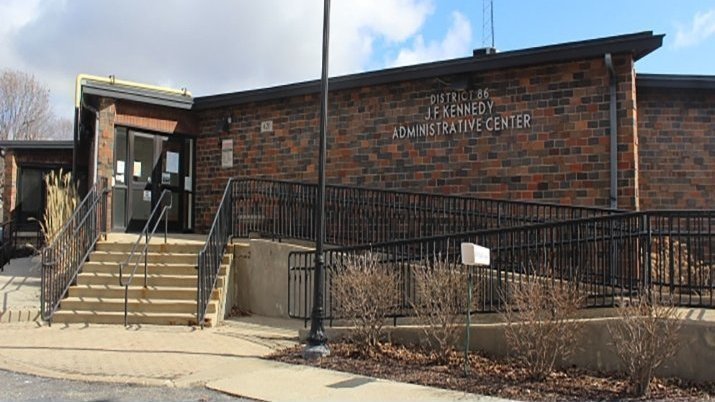By Kay Bolden
“I’m sick to death of masks. I’m sick to death of even hearing the word Covid. I’m sick of freaking out every time my kid coughs or sneezes,” a parent of a District 86 student told me. “It seems like this mess will never end.”
As another winter approaches, she may very well be right; 2022 is ending, but COVID-19 apparently isn’t finished with us yet. The Illinois Department of Public Health indicators has Will County at “Medium Risk” for new cases and new hospitalizations, meaning everyone should be taking precautions, but people with underlying health conditions or other risk factors should be especially careful: wearing a mask when in public, staying updated on vaccinations, and avoiding crowds. Covid surges are appearing around the country and around the world–milder than last winter, but still deadly.
What is pandemic fatigue and how do you know if you or your kids have it?
While there may be shots and treatments for Covid now, there is no standard way to diagnose or treat Pandemic Fatigue – that mental exhaustion that comes from the constant stress and anxiety of dealing with the virus. For Black families, the added weight of navigating racial trauma, loss of financial stability, the grief of losing loved ones to the virus, or concerns about lack of health care can turn “pandemic fatigue” into “pandemic burnout”.
According to the Centers for Disease Control (CDC), Black adults have been 10% to 26% more likely than white adults to report symptoms of psychological distress but are only half as likely to receive treatment or medication for their mental health.
Pandemic burnout can lead to more serious issues, such as depression. Notice if you or your children are experiencing:
- Physical and emotional exhaustion, even after resting or sleeping.
- Constant fatigue, aches and pains, appetite changes, or insomnia.
- A decline in compliance with mask-wearing and social distancing.
- Having anxiety around others, worrying about their covid or vaccination status.
- Lack of motivation or loss of interest in things you used to enjoy.
- Children and teens may also exhibit irritability, or withdraw from school activities, sports, friends, and hobbies.
According to Psych4Schools, the most devastating impact of the coronavirus is that it threatens our sense of control and safety in the world; we can often feel helpless in the face of what seems to be an overwhelming danger. Children and teens may also get inaccurate or frightening information from peers and social media, which increases their anxiety.
One of the cruelest facts about COVID-19 is that Black people are about twice as likely to die from COVID-19 as their white counterparts, and 2 ½ times more likely to be hospitalized. (Source: CDC) The CDC asserts that race and ethnicity are risk markers for Covid because our community faces multiple barriers to healthy outcomes, even in the best of times. Black parents are more likely to:
- Be employed in frontline, essential or infrastructure jobs that put them at increased risk of exposure and may have little to no paid time off.
- Have underlying health conditions like diabetes, asthma, obesity, sickle cell disease or cardiac conditions.
- Experience reduced access to health care due to lack of insurance or financial strain due to losing work hours.
What can parents do to support their kids during pandemic fatigue?
The risks to Black families are real. There may be a temptation to cling to the idea that “children are resilient”, but kids are just as vulnerable to trauma as adults–even if they’re not able to verbalize it.
- Listen to your kids – not just their words but their tone. Ask them to share their music, their video games, their movies, and TV shows with you. Ask them what they like about it, and why. Be aware of what/who is making an impact on how they think and feel.
- Depending on their age, monitor their social media interactions. Make sure they are taking “information breaks” from the online world and spending enough time in “real world” conversations.
- The pandemic has been a traumatic event in many ways and after any traumatic event, kids need to feel they can share their feelings. Acknowledge that while you can’t control the virus, you will never stop loving and protecting them, and that your family will get through the crisis together.
- Lean on your support structures; stay in touch with your church or faith community, your neighbors and friends. Talking with others you trust can help you cope.
- Take care of yourself. Try to get enough sleep, eat right, exercise, and keep a normal bedtime routine. If work or other obligations make routines difficult, try to have a daily “check in” – 15 minutes of uninterrupted time to connect, talk, and hug.
- Get outside every day, and not just for a dash to the car. If it’s cold, bundle up and take a walk around the block, stargaze from the back yard, collect leaves or pinecones, or count the number of birds or squirrels you see. Visit one of Will County’s beautiful Forest Preserve trails for a stroll or a bike ride. Studies show that reconnecting with nature can improve our mental health and resilience.
- Watch your language. Speak hopefully and optimistically about the future. Reassure your kids that things will get better.
- Get professional help if you need it. Contact your doctor, health clinic, mental health hotline, or local health department for mental health support. Visit the Illinois Department of Public Health help site (https://www.dhs.state.il.us/page.aspx?item=123539), or text HELLO to 741741. If you feel you or your child may be in crisis, go to the closest hospital emergency room.
Getting back to “normal” life
As discussed in Parts One and Two of this series, the return to in-person school has been welcomed by many but can also be a challenge of its own. The pre-Covid gaps between Black and white students were already stark, both nationally and locally. The District 86 2019 School Report Card, for example, shows that less than 7% of Black third-graders were meeting or exceeding grade-level expectations in English/Language Arts. In Math, less than 5% of Black students were meeting or exceeding expectations. (By contrast, one-third of white students were hitting those benchmarks.)
The National Center for Analysis of Longitudinal Data in Education Research (CALDER) at the American Institutes for Research, NWEA and Harvard University, suggests that “at this pace of recovery, most students in grades 3 to 8 will need a minimum of three school years to fully get back up to speed, with upper elementary and middle school students potentially needing much longer.”
Black parents can play a major role in closing this achievement gap by actively engaging with teachers and administrators; regularly engaging in literacy activities and schoolwork; and instilling a proud and informed perspective of pride in their kids.
We can emerge from this pandemic with more awareness of how connected we all are, more focus on addressing the social inequities that exacerbated the crisis, and more resilient children and families.





